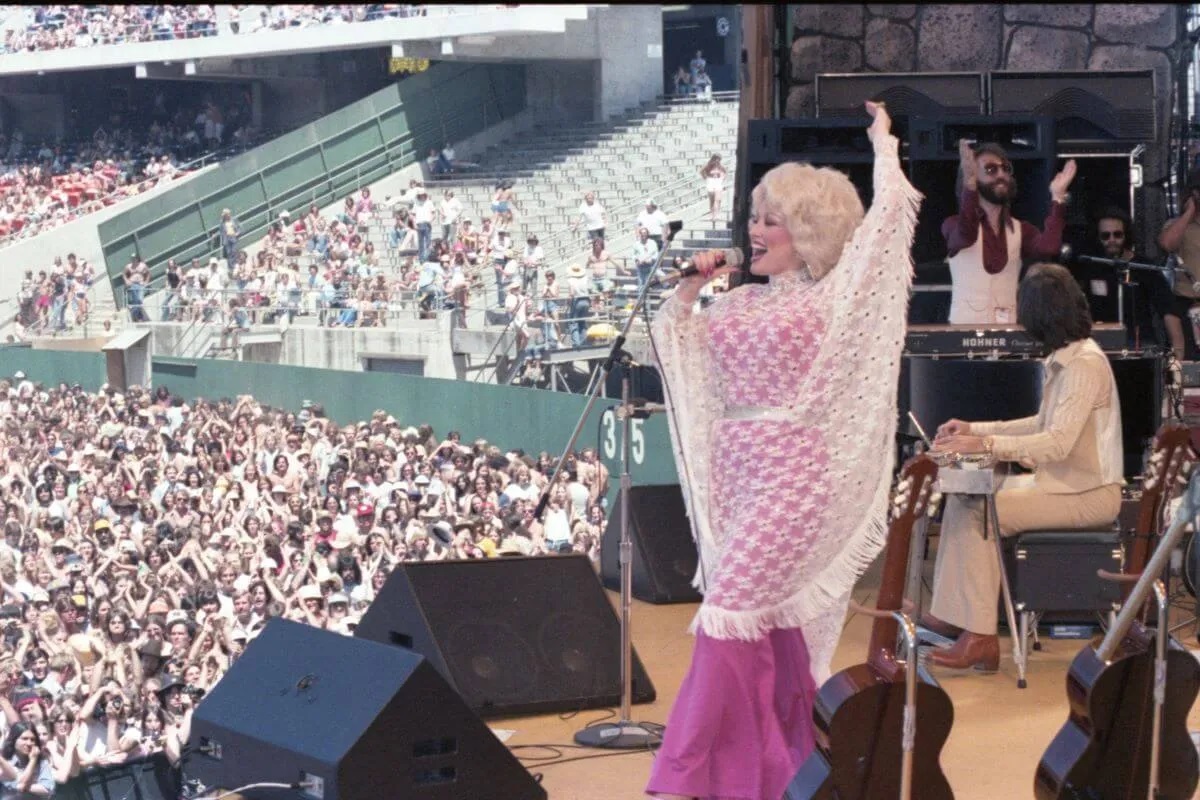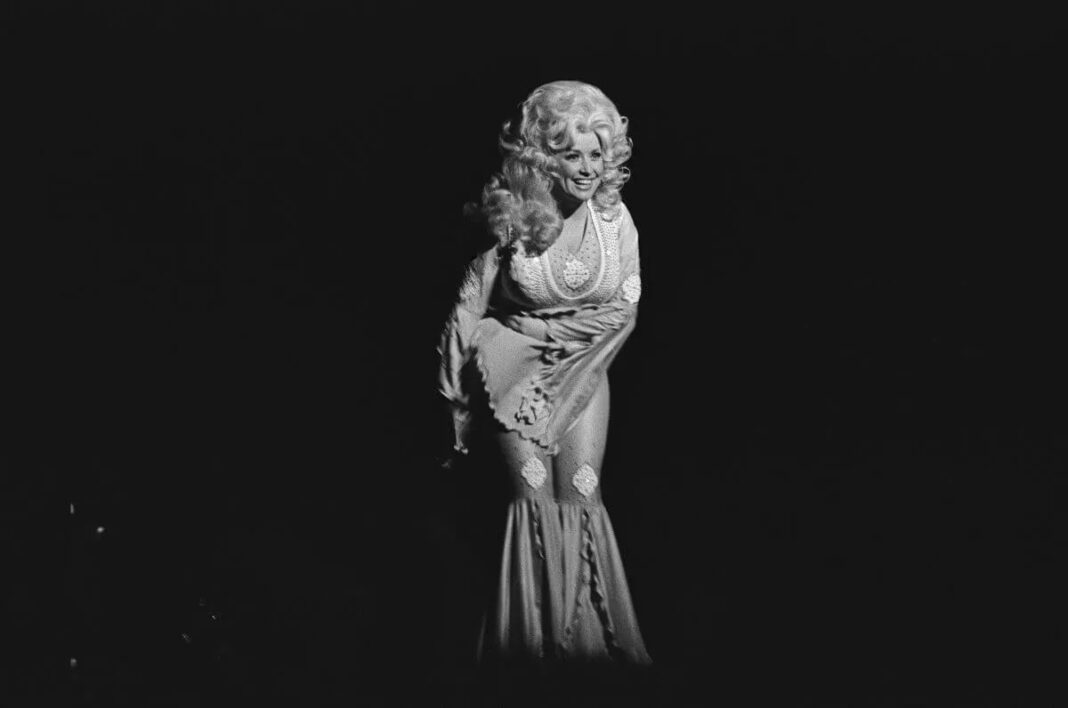Dolly Parton has spent her career cracking jokes at her own expense and telling stories of her humble beginnings in Tennessee. It’s worked well for her, as she has maintained the support of her dedicated fan base for years. In the 1970s, though, one reporter said Parton didn’t seem to want to be human.

When Parton crossed over to the pop charts and became more of a mainstream celebrity, many people didn’t seem to know what to do with her. She wore exaggerated outfits, wigs, and makeup and cracked jokes about herself, but she was clearly a talented artist. Journalists began publishing pieces to see if she was really the way she presented herself. Dave Hershey of the New York Daily News did not believe she was fully genuine.
“I was sent down to do the ‘Dolly Parton — Is She For Real?’ story— what’s behind the cornpone charm,” he said in the book Dolly by Alanna Nash. “And it’s a very well-cultivated act, I think. I tried to catch her at odd moments when she wasn’t hooked into her stage persona, but she always seems to be on. She’s just a very, very charming person, and you can’t catch her with her guard down. I’ve done a lot of big-time celebrities in the last year and a half, but she is as tough to catch off-guard as anybody.”
ershey said Parton dodged questions about her childhood, which made him believe she wasn’t genuine.
“She’s very guarded about her childhood. Everytime I would say, ‘It sounds like you had a miserable childhood,’ she would say, ‘Oh, no, no, it was really quite happy, joyful. I’m not like Loretta Lynn. I’ve had a very happy life,’” he said. “She’s afraid to appear human, and that’s sad. It’s just a matter of time before people see through it. I went out there totally objective, and I could tell it was an act the whole time.”






